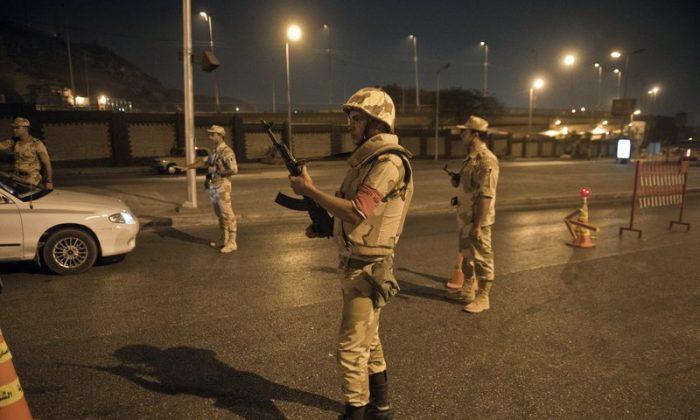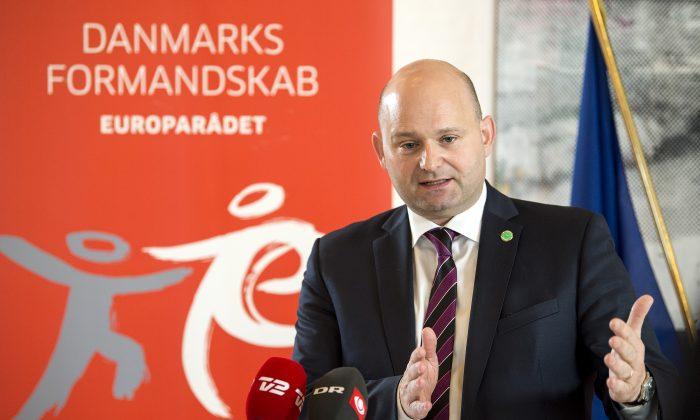In the wake of the Egyptian military’s violent crackdown on Muslim Brotherhood protesters, leaving over 1,000 people dead, both the West and Egypt’s neighbors are trying to decide on a course of action to curb the repression.
So far most of the debate in the United States and the European Union has been cast in terms of possible suspension of foreign aid and weapons exports.
The United States has canceled joint military exercises and delayed the delivery of four F-16 fighter jets in response to the violence, but it is still weighing whether to suspend some of its annual $1.5 billion in aid to Egypt.
According to a recent national survey by Pew Research Center, 50 percent of the 1,000 respondents think that President Obama’s response to the violence in Egypt has not been tough enough, and 51 percent think that the United States should cut off its military aid to Egypt.
Egypt is the most populous nation in the Arab world; it is a longtime U.S. ally and has been the bedrock of Washington’s Middle East policy, not least because of its peace treaty with Israel. Egypt also controls the Suez Canal, an important trade route, and has granted the United States fast passage through the canal to deploy carrier troops to the Persian Gulf.
But how much influence does the United States in reality have over the outcome in the current civil crisis in Egypt? U.S. secretary of defense, Chuck Hagel, described it as “limited” at a press conference Monday.
But Michael Izady, professor of Middle Eastern and Western history at Pace University, believes that when it comes to Egypt’s military, the United States still has leverage.
“We have a fair amount of influence on the Egyptian military, but also the secular, progressive strata of the Egyptian society,” he said.
Article Continues after the discussion. Vote and comment
[tok id=a62b1816497e3d77772659b2fd773b67 partner=1966]
“However, U.S. influence in the Muslim Brotherhood is very limited, and when it comes to the extremist Salafist, any such influence is nonexistent.”
Izady furthermore argues that the Egyptian military is the only force keeping the country out of chaos. If they should lose their grip on the country, it would descend into even worse bloodshed, as different social and religious factions would battle each other.
“The last any sane person should want would be an ineffective military,” he said. He therefore hoped that the United States continued its support of the Egyptian military, while “pushing them toward a less violent and more conciliatory course of action vis-à-vis the Brotherhood.”
The hope for such a course of action may seem distant right now, as the military appears to be on the verge of declaring the Muslim Brotherhood an illegal organization. The group’s “supreme guide,” Mohammed Badie, was detained Tuesday, and several prominent members have been killed in the crackdown.
While the United States seems to wield whatever influence it has by supporting while, perhaps symbolically, reprimanding the Egyptian military, Saudi Arabia has come out much more unequivocally on the side of the military, offering $12 billion in aid, together with other rich Gulf nations Kuwait and the United Arab Emirates.
Izady calls the Saudi stance “posturing” for its own domestic extremist factions. “[The] Saudi government is first and foremost worried about its own welfare and survival,” he said. “[A] takeover by the extremists would have a serious negative impact on the gilded Saudi family.”
The only major country in the region to openly support the Brotherhood has been Iran, which has been an Islamist state itself since 1979.
The EU meanwhile decided on Wednesday to suspend exports of weapons and goods that could be used for “internal repression” while keeping the aid programs alive. Catherine Ashton, the EU foreign policy chief, condemned the violence in a statement.
“We do believe that the recent operations of the security forces have been disproportionate and we’re worried about the resulting alarming number of people that have been killed,” she said.
The EU is Egypt’s biggest trading partner, and hopes to use this point as leverage in trying to bring about negotiations between the current Egyptian regime and the Muslim Brotherhood.
Associated Press contributed to this report.





Friends Read Free